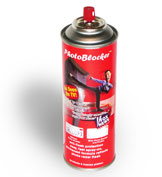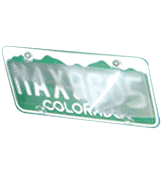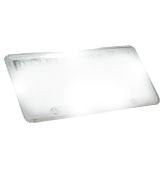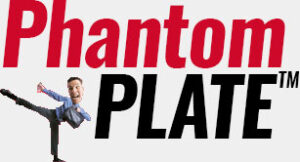Firm steps up to the plate…
Posted on Mon, Oct. 14, 2002
… to obscure car tags from cameras
By JIM NOLAN
nolanj@phillynews.com
Red-light cameras haven’t gotten to Philadelphia yet, but a Harrisburg company claims to have just the ticket to thwart them.
The entrepreneurs at Phantom Plate (phantomplate.com) are peddling a couple of products designed to neutralize the effects of red-light cameras and photo radar units by ruining the pictures they take of a motorist’s license plate.
The company sells a “photo blocker” spray and a customized license-plate cover that do nothing to alter the readability of the plate to the naked eye.
But when exposed to a flash photo taken at an angle – the kind that most red-light cameras employ to capture violators – the plates appear fuzzy, incomplete or washed out in pictures.
Red-light cameras rely on accurate pictures of license plates to trace motorist addresses and to prove guilt.
“The link was that if they can’t read the tag, they can’t find you,” said Joe Scott, 32, a former Penn State finance major who started Phantom Plate with his friend Joe Seyoum.
The “Photo Blocker” spray sells for $19.99, and the “Photo Shield” plate cover sells for $25.99.
The spray puts a high-gloss finish on a license plate that creates a glare when photographed. The photo shield features a plastic magnifying lens that bends light away from the plate, blurring or obscuring tag numbers.
Scott said the idea for Phantom Plate came after friends and family in the Washington, D.C., area began receiving tickets for running red lights at camera intersections.
“It was clear they were just trying to make money on it,” he said. “It was big business.”
Now, with red-light cameras sweeping the nation, the business of battling big brother is growing.
Phantom Plate is one of several companies that are exploiting red-light-camera rage.
“Our position is that it’s very easy to remedy your behavior and not get a ticket,” said Leslie Blakey of the National Campaign to Stop Red Light Running – a group funded by manufacturers of red-light-camera equipment.
“I just don’t think there’s a lot of justification for people to put those things on their cars so they can run lights with impunity and not get ticketed.”
Scott insisted that neither his company nor his product encourages motorists to break the law.
The products, said Scott, are designed to thwart authorities that are “just trying to make money” on a confusing intersection.
Right now, there is no law in Pennsylvania preventing the entrepreneurs at Phantom Plate from plying their flash-reflecting wares to motorists.
“Someone is always coming up with something to thwart our efforts to make it safe,” said Capt. Thomas Nestel, commanding officer of the Highway Patrol Division.
“It’s like a tennis match. We come up with something and they come up with something.
Ultimately, though, the folks at Phantom Plate continue to benefit from a law they hate.
“The more cameras out there, the more tickets people get,” said Scott. “Then the more likely they’ll be buying our product.”











